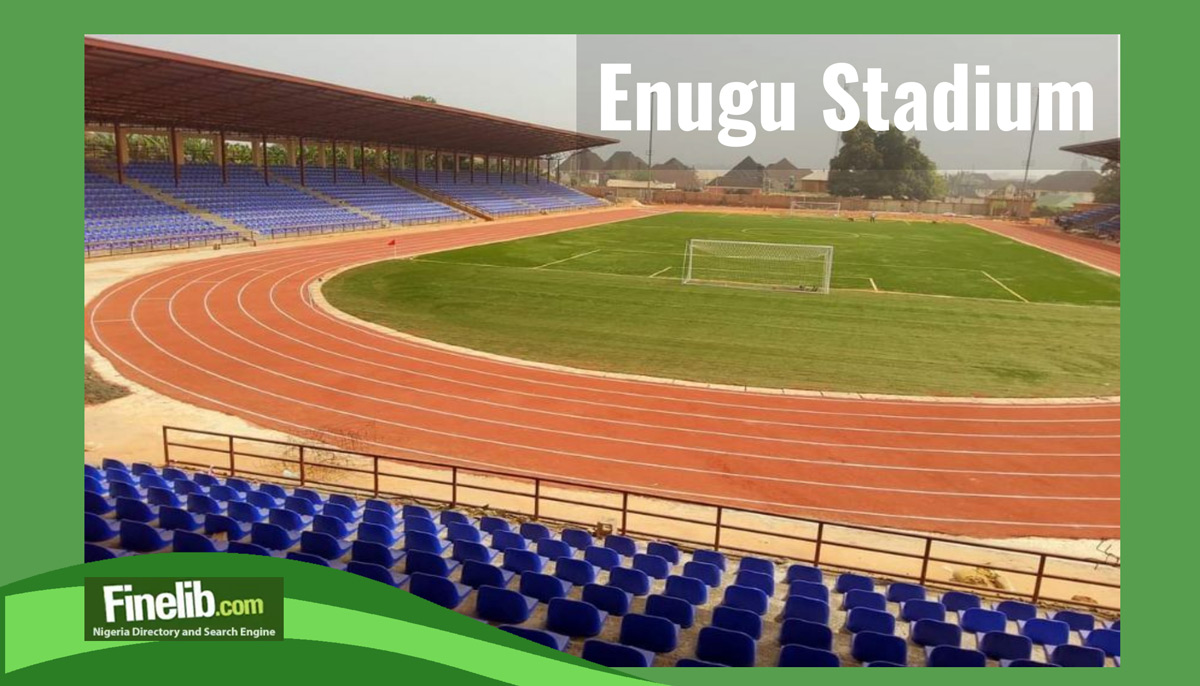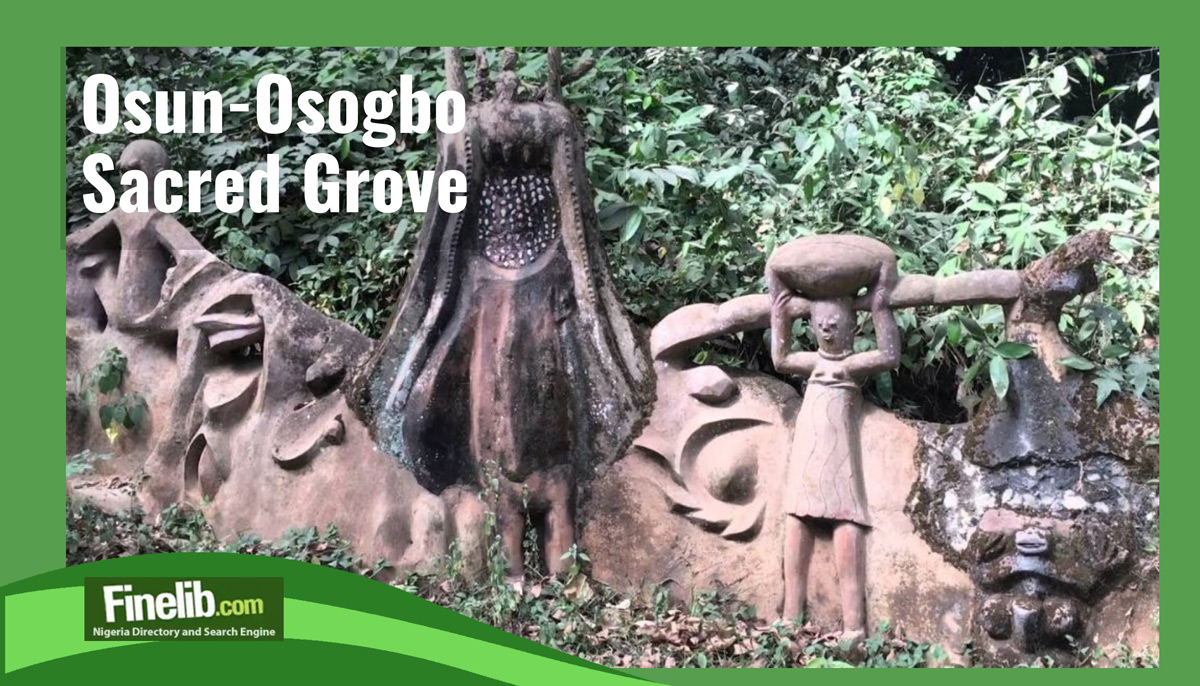The Nnamdi Azikiwe Stadium: A Historic Sporting Venue in Enugu, Nigeria

Enugu, Nigeria, is home to the iconic Nnamdi Azikiwe Stadium, a multi-purpose sporting arena that symbolizes pride for the city and the country. With a seating capacity of 22,000, this stadium has played a role in developing and promoting football in the region.
Named after Nigeria's first president, Nnamdi Azikiwe, the stadium has a rich history and has witnessed numerous memorable moments in Nigerian sports. This article aims to captivate readers with the intriguing story of the Nnamdi Azikiwe Stadium. Our discussion will cover the origin, significant occurrences, and utilization of the place in terms of sports and culture.
The Early Years: From Railway Ground to Regional Sports Center
The Nnamdi Azikiwe Stadium was only sometimes the grand sporting venue it is today. It served as the sports ground for the Nigerian Railway Corporation's Eastern District in its early years.
As early as 1959, the stadium was a hub for sporting activities in the region, reflecting the corporation's commitment to promoting sports during and after the colonial era.
The Rise of Enugu Rangers and Stadium Rebuilding Efforts
Enugu Rangers, one of Nigeria's most successful football clubs, emerged and made the Nnamdi Azikiwe Stadium their home base during this period.
The team quickly gained recognition for their impressive performances, capturing the imagination of football fans nationwide.
As the popularity of Enugu Rangers grew, the demand for a more modern and technologically advanced stadium increased. It led to a collaborative effort between the Anambra State Government and the private sector to fund the stadium's rebuilding.
Early Construction Phase
The Enugu Stadium, also known as the Nnamdi Azikiwe Stadium, was constructed in 1978 during the military administration of General Olusegun Obasanjo. The stadium's construction was part of the government's efforts to promote sports and physical education in Nigeria.
Nnamdi Azikiwe, Nigeria's first president, gave his name to the stadium. The intention behind its creation was to cater to various sporting events. A Chinese firm, the China Civil Engineering Construction Corporation (CCECC), carried out the stadium's construction.
The Enugu Stadium was built on a 22-hectare piece of land and had a capacity of 22,000 spectators. Over the years, the stadium has undergone several renovations and upgrades to meet modern standards. 2009 the stadium underwent a major renovation ahead of the 2010 FIFA.
Due to its strategic location in the heart of Enugu, the Eastern Nigeria Government eventually took over the venue's management, elevating its profile and making it a rallying point for sports enthusiasts.
Refurbishment and International Recognition
In 1986, after years of planning and fundraising, the Nnamdi Azikiwe Stadium underwent a major refurbishment and was inaugurated with great fanfare.
The newly revamped stadium boasted state-of-the-art facilities, including a well-maintained grass turf, a standard running track, and a modern video matrix scoreboard.
These upgrades aimed to provide spectators with a more comfortable and enjoyable experience. Thirteen years later, the stadium underwent another refurbishment to prepare for the FIFA U-20 World Cup in Nigeria in 1999. It hosted several crucial matches, including Nigeria's quarter-final loss to Mali.
Events Hosted in This Stadium
The Enugu Stadium, known as the Nnamdi Azikiwe Stadium, has hosted several remarkable sporting events. Here are some of the most notable ones:
1. 1982 Africa Cup of Nations: The Enugu Stadium was one of the venues for the 1982 Africa Cup of Nations, which Libya hosted. The stadium hosted several matches, including the quarter-final match between Ghana and Cameroon.
2. 2000 African Cup Winners' Cup Final: The Enugu Stadium hosted the final of the 2000 African Cup Winners' Cup, contested by Enugu Rangers of Nigeria and CS Sfaxien of Tunisia. Enugu Rangers won the match 2-0 to lift the trophy.
3. 2009 FIFA U-17 World Cup: The Enugu Stadium was one of the venues for the 2009 FIFA U-17 World Cup, which Nigeria hosted. The stadium hosted several matches, including the quarter-final match between Nigeria and South Korea.
4. 2010 FIFA World Cup Qualifier: The Enugu Stadium hosted a crucial 2010 FIFA World Cup qualifier match between Nigeria and Tunisia in 2009. Winning the game was an essential factor in Nigeria's advancement to the World Cup, making it a significant match. Playing to a capacity crowd, they won triumphantly with a score of 2-1.
5. Nigeria Premier League matches: The Enugu Stadium is the home ground of Enugu Rangers, one of Nigeria's most successful football clubs. The stadium has hosted numerous Nigeria Professional Football League (NPFL) matches involving Enugu Rangers and other NPFL clubs.
6. Athletics competitions: The Enugu Stadium has hosted several competitions, including the National Sports Festival and the Nigerian Athletics Championships. Many Nigerian athletes have used the stadium's track and field facilities to hone their skills and compete at the highest level.
7. Boxing matches: The Enugu Stadium has also hosted several boxing matches, including the national boxing championships and international bouts featuring Nigerian boxers. The stadium's indoor arena provides an intimate setting for boxing.
Now equipped with artificial turf, the stadium showcased its modern infrastructure and provided a fitting backdrop for the tournament's matches.
Group D, composed of Turkey, Costa Rica, Burkina Faso, and New Zealand, battled it out on the hallowed grounds of the Nnamdi Azikiwe Stadium, captivating audiences with skill and passion for the game.
The Stadium's Features and Facilities
The Nnamdi Azikiwe Stadium is renowned for its top-notch facilities and amenities. In addition to the football pitch, the stadium also boasts athletic facilities and basketball courts.
The well-maintained grass turf and standard running track create an ideal environment for athletes and spectators. The ultra-modern video matrix scoreboard ensures that fans don't miss a moment of the action. Furthermore, the stadium has been the venue for various social and political events, solidifying its status as a cultural hub.
Safety and Comfort at the Nnamdi Azikiwe Stadium
The safety and security of spectators are of utmost importance at the Nnamdi Azikiwe Stadium. The management has implemented stringent measures to secure a safe and enjoyable experience for all visitors.
With a long-standing reputation for being a secure location, fans can focus on supporting their favorite teams without any worries. Additionally, the stadium prioritizes the comfort of spectators, providing ample seating and facilities that cater to their needs.
Experiencing the Vibrant Atmosphere
Attending a match at the Nnamdi Azikiwe Stadium is an experience. The stadium exudes a vibrant atmosphere, with passionate fans filling the stands, creating an electric ambiance.
The chants and cheers in Pidgin English, Igbo - the local language, add a unique flavor to the matches, further immersing spectators in the local spirit. Whether you're a football enthusiast or simply looking to soak up the cultural atmosphere, the Nnamdi Azikiwe Stadium offers an unforgettable experience.
Conclusion
The Nnamdi Azikiwe Stadium is a testament to Nigeria's rich sporting heritage and the enduring passion for football in the country. From its humble beginnings as a railway ground to its transformation into a modern and technologically advanced stadium, it has played a vital role in shaping the sporting landscape of Enugu and Nigeria.
As Enugu Rangers continue to call this iconic venue their home, the Nnamdi Azikiwe Stadium remains a symbol of pride and a gathering place for sports enthusiasts.
Whether you're a local or a visitor, a trip to this historic stadium is a must for anyone looking to witness the beauty of Nigerian football and experience the vibrant energy that fills the air.




